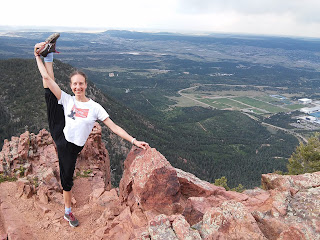A few weeks ago, I attended the National Mindfulness Symposium organized by the Radboud Centre for Mindfulness. This is a yearly event in which researchers and mindfulness practitioners (mostly the latter) get together to discuss current topics in mindfulness interventions and research. Obviously this year's meeting was online.
The meeting started with a talk by Stephen Batchelor. He emphasized the need to not focus so much on mindfulness as a way to temporarily relax, but instead developing the tools to lead more flourishing, wise and compassionate lives. While I do not agree with him that Buddhism gets in the way of this, and needs to go back to its secular roots to do this, I still found he made some helpful points. He summarized the way to flourishing in terms of four tasks: (1) saying yes to whatever is going on ("embrace life"), (2) letting go of habitual reactive patterns, (3) stopping of reactivity so you can respond more wisely and (4) actualize a way of life. So the main point is to act without aweareness, and with "fearless engagement" as he put it. Those are definitely sensible points in my book, and critical to face the disasters of today's world, ranging from covid-19 to climate change. A good document summarising this can be found here.
Next up was Jamie Bristow, who also emphasised skilful action. According to him, the main reason mindfulness works is that it allows us to engage in intentional action. This is beautifully written up in a document by the Mindfulness Initiative. According to this document, mindfulness helps to develop three dimensions of agency: perception, understanding, and doing. This helps to face the crisis of this world, which is our collective inability to act in accord with the complexity of the world. This includes the ability to face uncomfortable truths, and deal with information overload. Our attention is so easily distracted by the big corporations that we just act habitually without thinking. Mindfulness helps us to reduce this doing mode and engage more in a reflective being mode in which we can perform more intentional action.
The last keynote was by Femke Merkx, a Buddhist teacher who has been engaging a lot with climate change. She reminded us that the compassion cultivated in Buddhism is not as much a difficult moral imperative but rather through the practice is an effortless gesture. So we have to start by cultivating our minds in order for compassionate action to become effortless, like the image of green tara. As Joanna Macy puts it: start by honouring your pain, then letting compassion arise, which allows you to see with new eyes, such that you can go forth, and finally engage with joy, which allows you to have more courage to feel the pain, and the cycle starts again. She finally mentioned being part of the Climate Tables, a series of conversations in which the pain of climate change is deeply faced, and from a space of compassion these issues are thought about to allow people to start to act from their intrinsic values.

In the afternoon, there were contributed symposia. I attended a symposium about the effect of mindfulness interventions. There was a lot of discussion about mindfulness for parents of children with ADHD. Corina Greven presented work in which the interpersonal mindfulness in parenting scale showed improvements after such an intervention. Eva Potharst showed how this scale correlated with several other self-report scales, including acceptance and emotional communication. Importantly, it also correlates with objective behaviour such as the amount of mother's gaze towards the child. Mira Cladder-Micus investigated MBCT for very chronic and treatment-resistant depression. The good news was that even in this group, depression was reduced after the intervention, although it did not completely go away. A final study that was presented was an analysis of the cost-effectiveness of MBCT interventions, by Annelieke van Velthoven. Sadly, the MBCT was not cost-effective compared to continuing anti-depressant medication.
In the last session of the afternoon, I organized a panel on the ethics of being a mindfulness researcher. How can we use the principles we learn in our mindfulness practice to deal with the ethical challenges and the competitiveness of the academic world? The panel started off with very personal stories by Anne Speckens and Katleen van der Gucht, who shared how it was challenging to follow their own path instead of going for the route of perceived success. We then went into small groups and discussed how it is sometimes challenging to practise generosity and kindness when faced with a pressure to compete and excel. One issue we discussed is how peer review can sometimes be a brutal exchange, rather than a process of constructive criticism. We can all do our parts to be a kind reviewer (instead of being =="reviewer 2"). Another thing that came up is the importance of reducing your own sense of self-importance and practise humilty: both as a person and about your scientific findings. This all requires a slow change of culture, but hopefully we can all do our part and make this world a better place.



